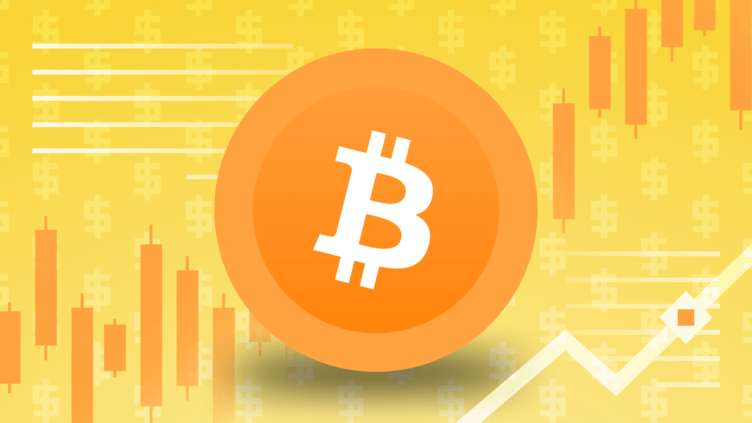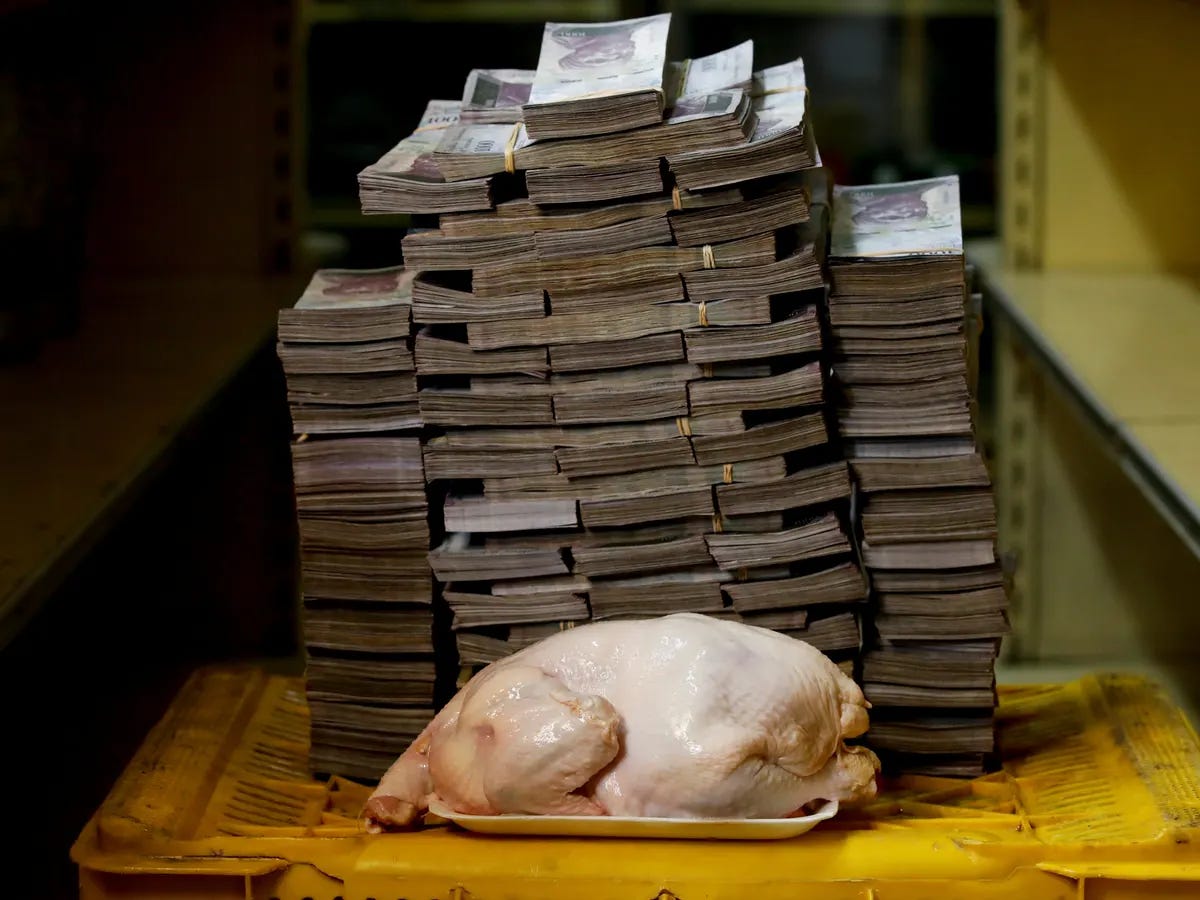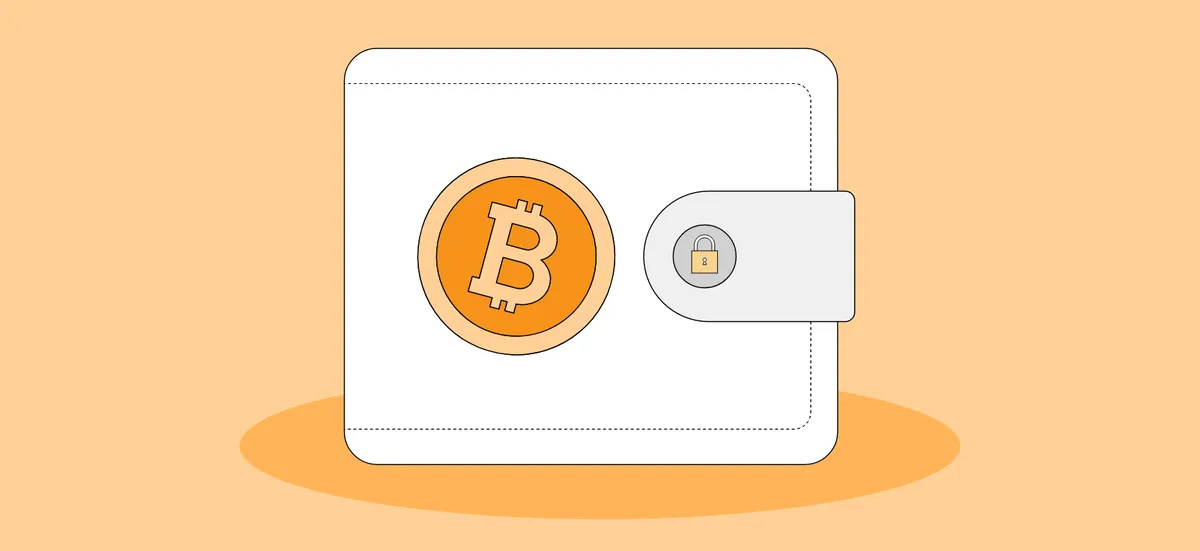What Is Bitcoin?
Bitcoin Is Digital Money
Put simply, bitcoin is digital money.
What Makes Bitcoin Unique?
it’s global
there’s no issuer
it’s censorship-resistant
Bitcoin Is Decentralized
Traditional money (also known as fiat currency) is government-issued and backed. Bitcoin is an open-source protocol. It only works if people run the bitcoin software and its associated hardware.
Anyone, anywhere globally can participate in the bitcoin network and the bitcoin supply is released via users running the protocol itself, not any centralized entity like a government or central bank.
Code Is Law
Traditional monetary policy is set and altered by politicians and central bankers. With bitcoin, the code sets the rules and those rules are difficult to change. They can be changed but it takes overwhelming consensus by participants on the network and, even then, the free market largely determines if those changes will be upheld.
Bitcoin is difficult to change.
That’s a feature, not a bug.
You Can’t Cheat Bitcoin
There’s no fake or counterfeit bitcoin or fraudulent bitcoin transactions. There’s only real bitcoin, on the bitcoin network, being sent to and from bitcoin users.
Bitcoin is the first successful implementation of cryptocurrency or digital money that cannot be double-spent. Satoshi Nakamoto (the creator of bitcoin) figured out a way to enable a proof-of-work hashing protocol that ensures all bitcoin activity on the network is verifiable and legitimate.
Cathie Wood Put It Like This:
Famed investor Cathie Wood is the founder, CEO, and CIO of Ark Invest. In 2014, she and a colleague tried to tear apart the bitcoin white paper, looking for any holes in the concept. Instead of holes, they found brilliance in the idea behind bitcoin. She made a personal investment of around $100,000 in bitcoin and Ark has incorporated bitcoin-exposure into its investment products.
They continue to put out The Monthly Bitcoin Report with great insights.
Not Just an Investment
But, bitcoin isn’t just an investment. Bitcoin is many things to many different people and it largely depends on the country you live in.
I live in the United States. The US dollar is the world reserve currency. Even during times of crisis, the US banking system and US markets are resilient and robust compared to other parts of the world. I see bitcoin for its value propositions beyond being just an investment, but, for US citizens, it’s largely a hedge investment to add to your overall financial portfolio.
Look at countries like Nigeria, Ukraine, or Venezuela though and you find bitcoin has an entirely different impact.
In places with hyperinflation, corrupt governments and central banks, or regions in turmoil due to conflict, bitcoin becomes financial optionality through two primary value props.
store of value
censorship-resistance
Bitcoin is an option when you cannot rely on your local currency. In that sense, it can act as a store of value.
In Venezuela, reported hyperinflation rates have reached as high as 54,000,000%. Yes, that’s a real inflation rate! Since the 1970s alone, Argentina has debased its currency a handful of times. In countries where the government cannot be relied upon to uphold value in the local currency, bitcoin is so much more than just a speculative investment.
It’s a lifeboat.
There’s still a lot of price volatility in bitcoin because it’s a young asset. As adoption increases and new markets are tapped, that volatility could decrease but it’s going to take time so bitcoin must prove itself to be a store of value over the long term. That doesn’t takeaway from it’s other key value prop though; censorship-resistance.
Just as an individual wants to rely on the value in their money, they also want to have confidence that they are free to hold and spend it as they wish. That’s censorship-resistance.
Bitcoin, held privately by the user, cannot be confiscated or frozen by any other party, for any reason, or under any circumstances. That makes bitcoin a money that can cross borders and be used by anyone without permission from traditional authorities.
Bitcoin is a manifestation of financial optionality and inclusion.
Bitcoin Uses Energy
There’s no central bank of bitcoin. No bitcoin treasurer or president setting monetary policy. Instead, it is users, running the bitcoin software on computers via a process known as bitcoin mining who release bitcoin into circulation. Bitcoin miners process transactions and add them to the blockchain, a public ledger that records all activity on the bitcoin network. They receive a small bitcoin reward for their efforts and either hold it themselves or sell it onto the open market.
The process of bitcoin mining uses energy. Despite common misconceptions around bitcoin’s energy usage though, bitcoin’s proof-of-work mechanism, commonly called bitcoin mining, is another feature, not a bug.
Proof-of-work ensures all users are playing by the same rules. You have to earn bitcoin. That requires work.
Bitcoin miners are incentivized to seek out the cheapest and most efficient energy available because otherwise, it wouldn’t be profitable for them to mine bitcoin. Some of the world’s largest bitcoin miners are proving out the thesis that bitcoin mining will ultimately leverage sustainable, more efficient, and innovative technologies.
Iris Energy is a publicly traded bitcoin mining using 100% renewable energy. I’m personally invested in another publicly-traded bitcoin mining company called Bit Digital. They’re using hydro, solar, and wind power to mine bitcoin and are 85% carbon-free as of 2023.
The energy debate will exist so long as bitcoin has critics. It’s an attack vector for those who believe bitcoin isn’t worth any energy. That’s okay!
Bitcoin welcomes critics.
In fact, it loves them because it provides the network with a chance to demonstrably respond.
The beauty of bitcoin is that if people deem it a worthwhile endeavor, bitcoin will continue to exist.
Bitcoin vs Crypto
Bitcoin is a cryptocurrency but not all crypto is bitcoin. Compared to all other top cryptocurrencies, bitcoin is the most decentralized with the largest and most secure computing network. The fixed supply limit of 21 million, reinforced via bitcoin mining, also differentiates bitcoin from other cryptocurrencies such as ethereum who have no supply limit.
Additionally, other cryptocurrencies rely more on their founders, centralized organizations, businesses, venture capital, and more in order to function. Unlike most of the crypto space, bitcoin is user-led. The decentralized nature of bitcoin puts the power in the hands of you, the user. Bitcoin’s creator, Satoshi Nakamoto, got the network up and running but stepped away from the project as it gained traction. He has no say over the future of bitcoin.
I’m a bitcoiner.
I view bitcoin as sound money.
It’s like digital gold.
But, I hold other cryptocurrencies including ethereum. That’s primarily due to the fact that I mined ethereum for the better part of two years before the ethereum network changed its monetary policy and got rid of mining. I now mine other cryptocurrencies in exchange for bitcoin and, despite the fact that I own some crypto that isn’t bitcoin, my end goal is always to gain more bitcoin.
Born Out of Crisis
Bitcoin was born out of crisis. On September 15, 2008, the 2007-2008 global financial crisis came to a head with the bankruptcy of Lehman Brothers. It’s no coincidence that one month later, on Halloween, Satoshi released the bitcoin white paper. Bitcoin was a direct response to the problems seen in the fractional-reserve banking system.
Each day that passes means that bitcoin is still working. It was born out of crisis and is built for crisis.
Bitcoin responds to critics by continuing to exist. It grows as a tool for financial inclusion every time an individual in another country creates a bitcoin wallet as simply by downloading an app.
Bitcoin hasn’t replaced the legacy financial system and it doesn’t purport to be doing so. All it’s doing is providing financial services to people who have otherwise been forgotten or deliberately disadvantaged within their local economies. Bitcoin is both a savings tool in its attempt to be a store of value and a global currency in its ability to be transacted with anywhere.
My Bitcoin Strategy
It’s not realistic for me to have 100% of my net worth in bitcoin. That’s the case for most bitcoiners. We live in a world where we must interact with the legacy financial system on a regular basis. There’s ways to go all in on bitcoin but it’s not feasible for most people right now. That could change but that’s why I have a personal bitcoin strategy for bitcoin using and investing in bitcoin.
I hold bitcoin via self-custody. That means it’s not on a centralized cryptocurrency exchange or any other platform similar to a traditional brokerage or bank. I own bitcoin and some other cryptocurrencies from time to time. You can get a look at my portfolio here. I update it monthly.
In traditional investment portfolios, I have exposure to the bitcoin and crypto space via publicly-traded companies like Bit Digital. That’s the bitcoin miner I mentioned earlier. There are a lot of ways to gain exposure to bitcoin and crypto markets in your traditional portfolio if you’re not interested in purchasing bitcoin directly. This type of exposure can even come from some of the biggest and longest-standing names in technology, energy, and beyond. For more on this topic, see my post on ways to get indirect exposure to bitcoin and cryptocurrency.
So, What Is Bitcoin?
Bitcoin is digital money.
It’s also digital gold.
It’s a global network.
It’s user-led and supported.
Bitcoin is financial optionality, empowering individuals the world over. It’s a monetary experiment playing out before our eyes that may very well influence the way we do things in the legacy financial system.
Bitcoin is worth paying attention to.
I’m glad you’re here!
Let’s keep learning together.
Some Bitcoin Resources:
I am not an investment or financial advisor. All opinions expressed are mine alone. Read the full DISCLAIMER on the About page.
HODL on Garth.










